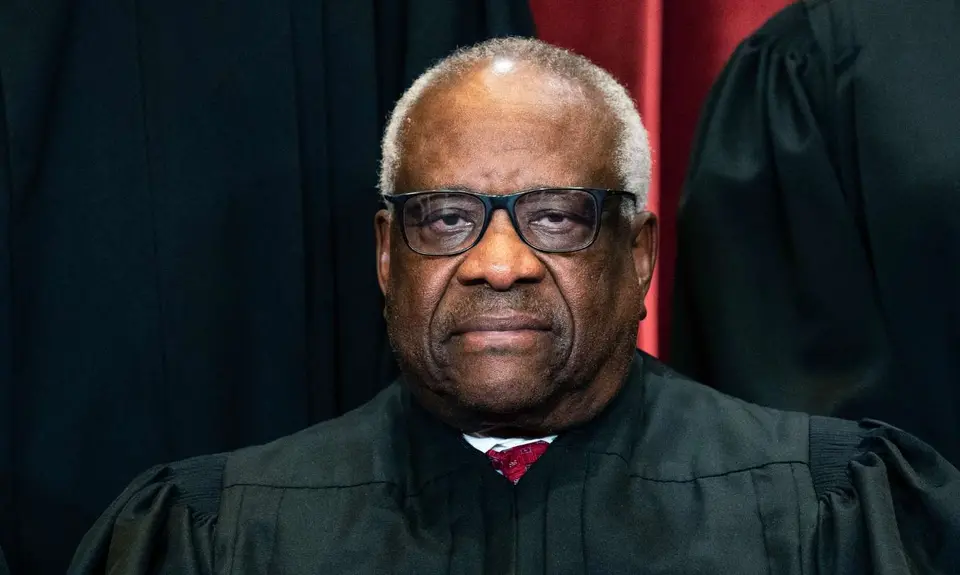A May 2nd Senate Judiciary Committee hearing made three things clear: One, the Supreme Court desperately needs a binding code of ethics. Two, Congress has the constitutional authority to require such a code. And three, Republicans like the corrupt and lawless Court just the way it is.
The problem: There’s no enforceable code of ethics binding Supreme Court justices.
Every federal judge except for the nine justices is obligated to follow the Code of Conduct for United States Judges. Violations are subject to formal discipline from ethical panels comprised of other federal judges. But, amazingly, that code doesn’t apply to the Supreme Court. The result? Justices have engaged in unethical conduct that no other judges could get away with.
Committee Chair Dick Durbin invited Chief Justice John Roberts to testify, or to send any of the other eight justices in his place. Roberts refused. He said it would be inappropriate for a chief justice to testify before a congressional committee.
But what about the other justices? They’ve testified before Congress before, and Durbin specifically asked Roberts to send one of them if he couldn’t appear himself. But Roberts didn’t even mention that in his response to Durbin.
That’s a pretty big oversight from someone who reads and parses texts carefully for a living.
Before the hearing
Before the hearing, a number of senators and leaders of progressive groups held a press conference at the Supreme Court. One of them was People For the American Way president Svante Myrick, who stated:
The more power you have, the higher the [ethical] standard must be. The more power you have, the more people have to trust that you can wield that power without undue influence.
People For the American Way submitted testimony to the committee. We explained how the Court affects people’s lives and why the public is rightly concerned about the ethical problems among the justices. We called for Congress to impose a binding ethics code on the justices if they won’t do it themselves. And we repeated our call for accountability for past ethical misconduct by Justice Thomas.
What happened at the hearing?
Chair Durbin opened the hearing pushing back against the chief justice for citing separation of powers as an excuse not to testify. “In fact, answering legitimate questions from the people’s elected representatives is one of the checks and balances that helps preserve the separation of powers.” He also noted the difference between a justice consulting ethical guidelines and actually being bound by them. He and other committee Democrats pointed out the numerous ethical lapses among current Supreme Court justices and decried the lack of binding ethics rules.
In contrast, Republican committee members accused Democrats of trying to intimidate and threaten the conservative justices (or, as Lindsey Graham forthrightly called them in his opening statement, “our folks”), and they repeatedly framed Clarence Thomas as a victim of a smear campaign.
Sen. John Cornyn even replayed a snippet from 1991 of Thomas denying Anita Hill’s harassment allegations. Republicans apparently thought that helped show Thomas as a victim. But outside the far right, the video just reminded us that we’ve known about Clarence Thomas for a long, long time.
The committee also heard from several experts. Former Judge Jeremy Fogel called the lack of a formal structure for establishing and enforcing ethical rules untenable. Kedric Payne (Senior Director of Ethics at Campaign Legal Center) cited the chief justice’s own description of how justices handle ethics issues as showing that the Supreme Court “has the least developed ethics rules of any branch of government.” And Professor Amanda Frost of the University of Virginia School of Law analyzed how Congress has the constitutional authority to regulate the Court’s ethical standards.
Testifying against reform were two former officials from the George W. Bush administration: former attorney general Michael Mukasey and former principal deputy assistant attorney general Thomas Dupree. Both cited the separation of powers as barring Congress from requiring the Supreme Court from adopting a binding code of ethics.
What can we do? What happens next?
Sign our petition to the Justice Department to hold Clarence Thomas accountable for his misconduct.
Call your members of Congress and tell them that the Supreme Court needs a binding code of ethics.
In the meantime, it’s supremely important to get good judges confirmed to every federal court, not just the Supreme Court. Call your senators and tell them that confirming President Biden’s judicial nominees has to be a priority for them.
